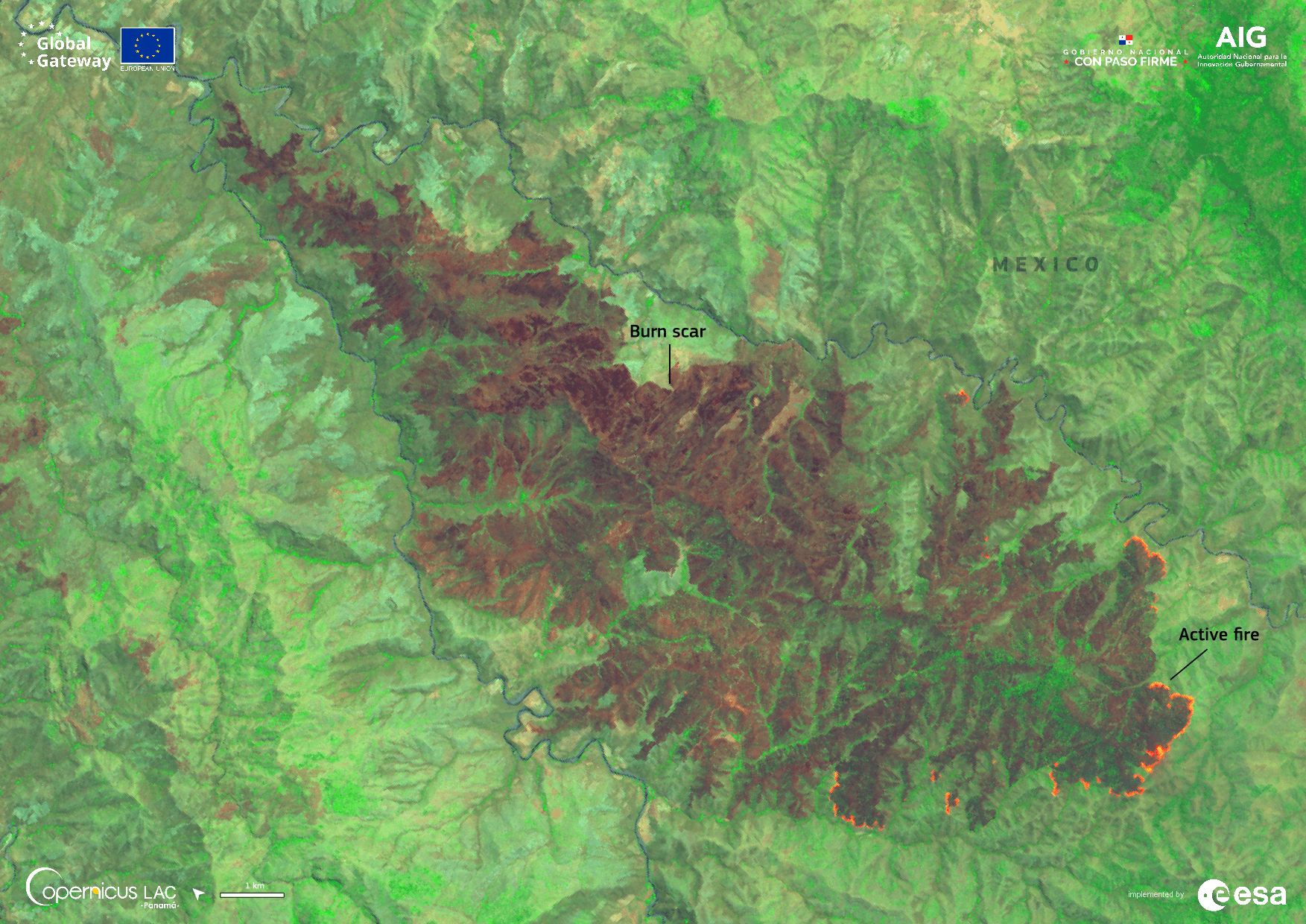A regional hub promoting the use of free and open Earth Observation data from Copernicus in the Latin America & the Caribbean region.

Overview
The Centre is setup in the framework of the EU-LAC Digital Alliance and hosted by the government of Panama. The European Space Agency (ESA) is coordinating the Centre’s implementation through a Contribution Agreement with the Directorate-General for International Partnerships (DG INTPA) of the European Commission, and in partnership with Panama’s government, MIRE (Ministry of Foreign Affairs), Government Innovation Authority (AIG), and SENACYT (National Secretariat for Science, Technology and Innovation).
The Centre’s key objectives within the LAC region are:
- Fostering the use of space-based information and the regional uptake of Copernicus open data and services.
- Developing regional capacity to process Sentinel data and use Copernicus products for decision-making.
- Developing EO services to support Disaster Risk Reduction (DRR) and Risk and Recovery Mapping in close cooperation with national and regional LAC organisations, and fostering links among the LAC Earth Observation (EO) and DRR communities.
- Serving as a hub for the development and use of EO products tailored to the specific needs of the LAC region.
[ … ]

Pilot Services
The use of Earth Observation (EO) technologies by institutions in the Latin American and Caribbean (LAC) region to address local environmental, humanitarian, economic, and societal challenges has been steadily growing. To complement these existing activities based on the use of EO data and technologies, and to support the continued development of local capabilities and capacity building, the CopernicusLAC Panama Centre will develop three streams of EO-based pilot services focused on harnessing Copernicus data for Disaster Risk Reduction (DRR) and Risk and Recovery Mapping, which will be handed over to local stakeholders for continued implementation after the end of the pilot demonstration phase.
To ensure that the unique needs, requirements, gaps, and priorities of the region underpin the development and direction of the pilot services, their development is based on stakeholder consultations and will be assessed for validity through various use cases. The pilot services will leverage EO data to complement existing regional systems while helping to boost the benefits for local communities.
[ … ]













